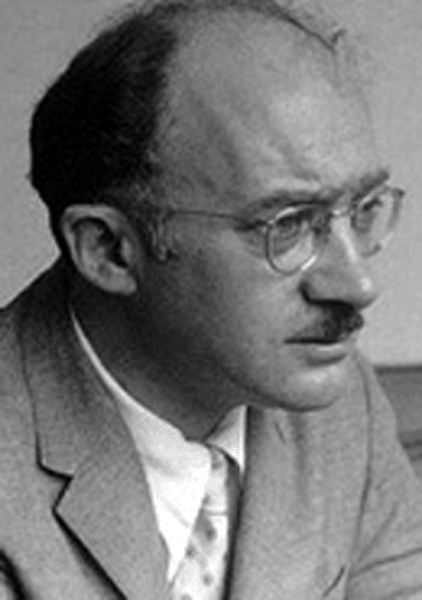
The following article by Joesph Berger appeared in the New York Times:
Abraham Sutzkever, one of the great Yiddish poets of his generation who evoked the nightmare of the Holocaust with images of a wagonload of worn shoes and the haunting silence of a sky of white stars, died Wednesday in Tel Aviv. He was 96.
His daughter Mira Sutzkever confirmed his death.
“In the postwar world, he was the most important Jewish poet and a world class poet in general,” said Dr. Paul Glasser, associate dean of the Max Weinreich Center for Advanced Jewish Studies at the YIVO Institute for Jewish Research in Manhattan. “People thought he should have gotten the Nobel Prize, but now he won’t.”
Mr. Sutzkever had helped rescue YIVO manuscripts and other treasures from the Nazis when they occupied the Lithuanian city of Vilna.
Writing poetry helped Mr. Sutzkever survive a war in which he lost his mother and an infant son as well as the Jewish soul of his beloved city of Vilna, which prided itself as the Jerusalem of Lithuania for its fiercely cultivated intellectualism.
There, with his sometimes flint-hard, sometimes lyrical voice, he found an audience as a member of a renowned group of Yiddish artists and writers, Yung Vilne, which included Chaim Grade, Shmerke Kaczerginski and Leyzer Volf.
That golden age came to an end in June 1941, when the Nazis invaded the city and eventually herded its 60,000 Jews — one-third of its population — into a ghetto as the first step toward mass killings in giant pits and deportations to concentration camps.
Mr. Sutzkever, a wiry man with an impish sense of humor and a full-throated appetite for living, smuggled arms into the ghetto. When he was assigned by the Nazis to round up books that would be sent to Frankfurt for an ominously named Institute for the Study of the Jewish Question, he and other intellectuals in a so-called Paper Brigade concealed precious books and art works, including a diary by Theodor Herzl and drawings by Chagall, in building cavities and crannies.
He helped unearth many of them when he briefly returned to Vilna after the war, and those treasures wound up in YIVO’s home in exile in Manhattan.
All that time he composed poems, writing, he once said, while crawling through sewers and even while hiding in a coffin.
“If I didn’t write, I wouldn’t live,” he said in an interview with The New York Times in 1985 while reminiscing over a glass of French cognac. “When I was in the Vilna ghetto, I believed, as an observant Jew believes in the Messiah, that as long as I was writing, was able to be a poet, I would have a weapon against death.”
In a 1942 poem called “My Mother,” he wrote of a dead mother who tells her son:
If you remain
I will still be alive
as the pit of the plum
contains in itself the tree
the nest and the bird
and all else besides.
His poem about a sky filled with white stars was put to a plaintive melody and became a classic of Yiddish song — “Unter Dayne Vayse Shtern” (“Beneath the Whiteness of Your Stars”).
Mr. Sutzkever and his wife, Freydke, fled the ghetto with a group of partisans and were airlifted to Moscow, where their daughter Rina was born. The family made its way to Poland and Paris and finally to the British mandate of Palestine, where they remained after independence in 1948.
In Israel, where modern Hebrew was the muscular language, he devoted himself to keeping Yiddish alive even as the number of speakers diminished year after year. He founded and edited Israel’s leading Yiddish literary journal, Di Goldene Keyt (The Golden Chain), until it stopped publishing in 1995. And he continued to turn out Yiddish poetry, most notably “Lider fun Togbukh” (“Poems From a Diary 1974-1981”), which many regard as his masterpiece. In 1985, he was awarded the country’s most prestigious award, the Israel Prize.
Mr. Sutzkever’s wife died seven years ago. In addition to his daughters Mira and Rina Sutzkever Kalderon, he is survived by two grandchildren.
Abraham Sutzkever was born in 1913 in Smargon, a small industrial city southwest of Vilna in today’s Belarus. With the outbreak of World War I, his parents fled to Siberia.
In 1921, after the death of his father, his mother resettled the family in Vilna, where Mr. Sutzkever attended Polish-Jewish schools, audited Polish literature classes at Vilna’s university and studied Yiddish literature with the great linguist Max Weinreich. His debut on the Vilna cultural scene was notable for his rejection of politically themed poems for ones that emphasized wordplay and experiments with sound and rhythm.
Many readers remember him most, however, for poems that capture the pathos of what he and other Jews experienced in the war, like the verses he wrote in 1942 in “A Vogn Shikh” (“A Wagon of Shoes”), about a wagon clattering through Vilna’s alleys filled with a heap of “throbbing shoes.”
The poet asks:
Tell me the truth, oh, shoes,
Where disappeared the feet?
The feet of pumps so shoddy,
With buttondrops like dew —
Where is the little body?
Where is the woman, too?
All children’s shoes — but where
Are all the children’s feet?







